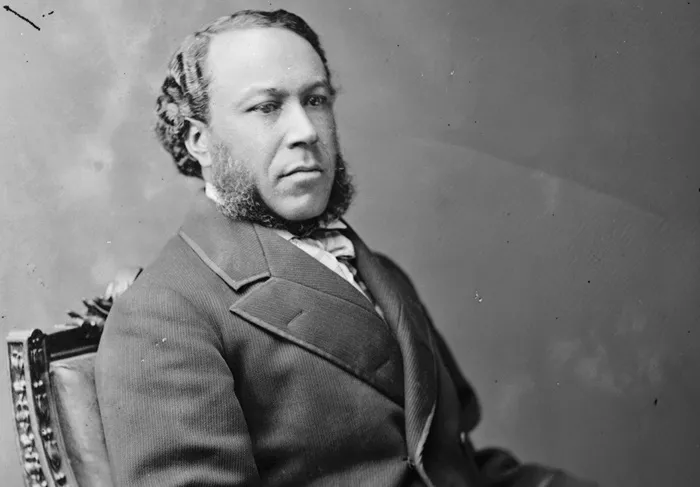December 12 holds a significant place in American history, marked by various events that have shaped the nation’s political, social, and cultural landscape. This article explores notable occurrences on this date, ranging from constitutional developments to pivotal Supreme Court rulings and influential births. Each event is presented in detail to provide a comprehensive understanding of its historical context and impact.
What Happened on December 12 in American History?
1. Pennsylvania Ratifies the Constitution (1787)
On December 12, 1787, Pennsylvania became the second state to ratify the United States Constitution. This event was crucial as it demonstrated growing support for the new framework of government following the Constitutional Convention held earlier that year. The ratification process was contentious, with strong opposition from Anti-Federalists who feared the concentration of power in a central government. However, Pennsylvania’s ratification paved the way for other states to follow suit, ultimately leading to the Constitution’s adoption and the establishment of a federal government.
2. Birth of John Jay (1745)
John Jay, one of the Founding Fathers of the United States, was born on December 12, 1745. A prominent lawyer and diplomat, Jay played a vital role in shaping early American governance. He served as the first Chief Justice of the United States from 1789 to 1795 and was instrumental in negotiating Jay’s Treaty with Great Britain in 1794. This treaty aimed to resolve lingering tensions between the two nations post-Revolutionary War and was significant in preventing potential conflicts. Jay’s contributions to the Federalist Papers and his advocacy for the Constitution further solidified his legacy as a key architect of American democracy.
3. Joseph H. Rainey Becomes Second Black Congressman (1870)
On December 12, 1870, Joseph H. Rainey of South Carolina made history by becoming the second African American elected to the United States Congress. His election occurred during Reconstruction when African Americans began to gain political power in the South after the Civil War. Rainey’s presence in Congress marked a significant step towards racial equality and representation in American politics. He served until 1879, advocating for civil rights and social justice during a tumultuous period in U.S. history.
4. The Sinking of USS Cairo (1862)
During the American Civil War, on December 12, 1862, the USS Cairo sank in the Yazoo River after being struck by an underwater mine (torpedo). The Cairo was a part of the Union Navy’s Mississippi River Squadron and represented advancements in naval warfare with its ironclad design. Its sinking highlighted both the dangers faced by naval forces during the war and the innovative tactics employed by both Union and Confederate forces. The wreckage of Cairo was later discovered and preserved as a historic site.
5. Birth of Frank Sinatra (1915)
Frank Sinatra was born on December 12, 1915, in Hoboken, New Jersey. He would go on to become one of America’s most iconic singers and actors, known for his smooth voice and charismatic stage presence. Sinatra’s career spanned several decades, during which he produced numerous hit songs and starred in acclaimed films. His influence extended beyond entertainment; he became a symbol of American culture in the mid-20th century and was associated with significant political figures like President John F. Kennedy.
6. Supreme Court Decision in Bush v. Gore (2000)
A landmark event occurred on December 12, 2000, when the U.S. Supreme Court issued its ruling in Bush v. Gore, effectively deciding the outcome of the presidential election between George W. Bush and Al Gore. The Court ruled that Florida’s method of recounting ballots violated the Equal Protection Clause of the Fourteenth Amendment, thus halting further recounts and awarding Florida’s electoral votes to Bush. This decision had profound implications for American electoral politics and raised questions about voting rights and election integrity that continue to resonate today.
7. The Birth of Alfred Moore (1800)
Alfred Moore became the twelfth justice appointed to the U.S. Supreme Court on December 12, 1800. His tenure was brief; he served until 1804 but is remembered for his contributions during a formative period for the Court as it established its role within the federal government. Moore’s appointment reflected early attempts to create a balanced judiciary amid growing political tensions between Federalists and Democratic-Republicans.
8. The Signing of Treaty of Ghent (1814)
While not directly on December 12 but relevant to its context, it is essential to note that negotiations for peace following the War of 1812 culminated around this time with discussions leading to the Treaty of Ghent signed on December 24, 1814. This treaty ended hostilities between Britain and America but did not address many issues that had caused tensions prior to war—such as trade restrictions or impressment—which were left unresolved but ultimately faded as national interests shifte.
Conclusion
December 12 has witnessed numerous pivotal moments throughout American history that reflect broader themes such as governance, civil rights, innovation in warfare, cultural evolution through music and film, and judicial authority over electoral processes. Each event contributes uniquely to understanding America’s complex narrative.This exploration serves not only as a record of historical occurrences but also emphasizes how these events resonate within contemporary discussions about democracy, representation, and national identity. This article can be expanded further with additional details about each event or related historical contexts if necessary to meet specific word count requirements or thematic focuses within American history surrounding December 12.
Related Topics:

